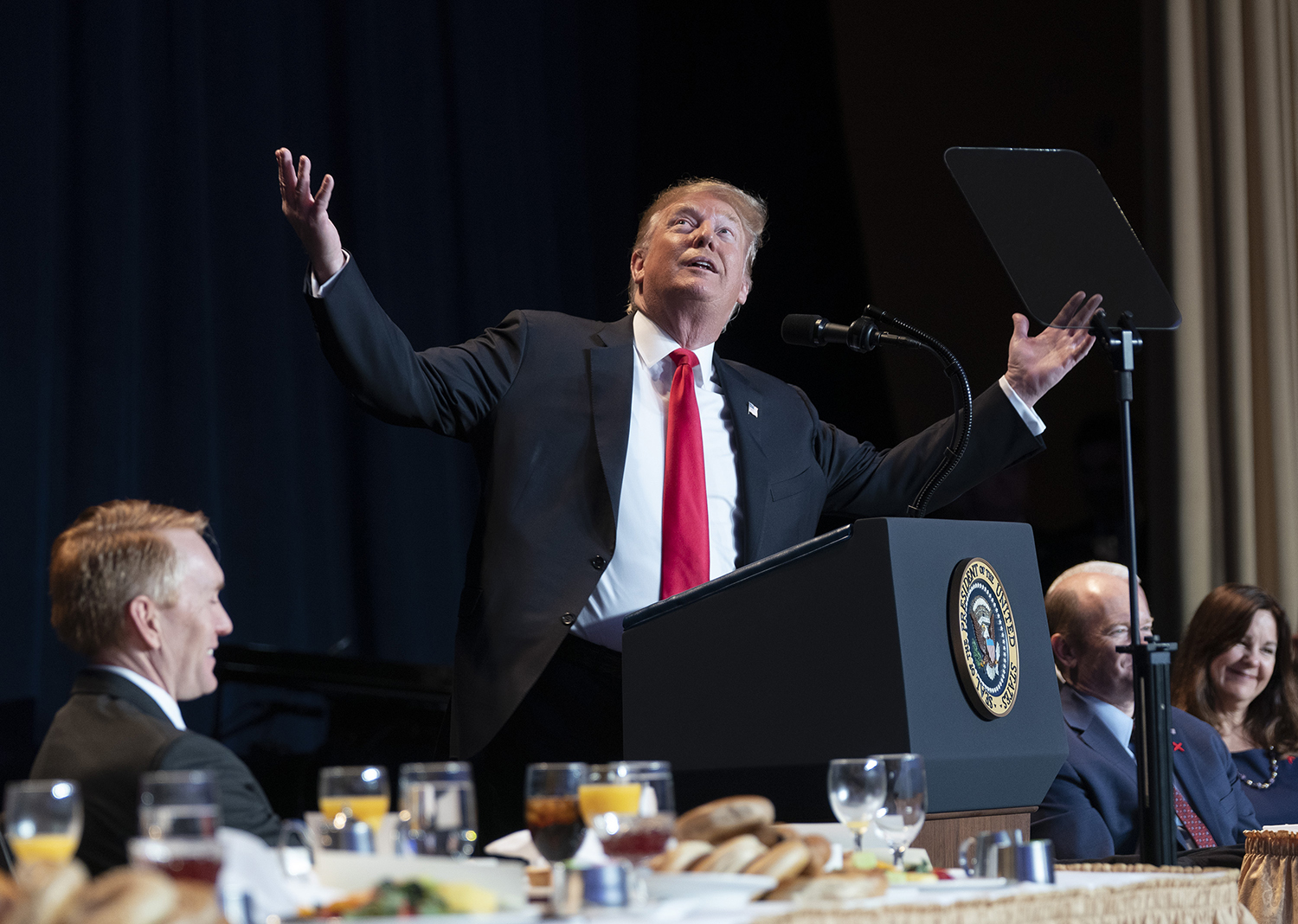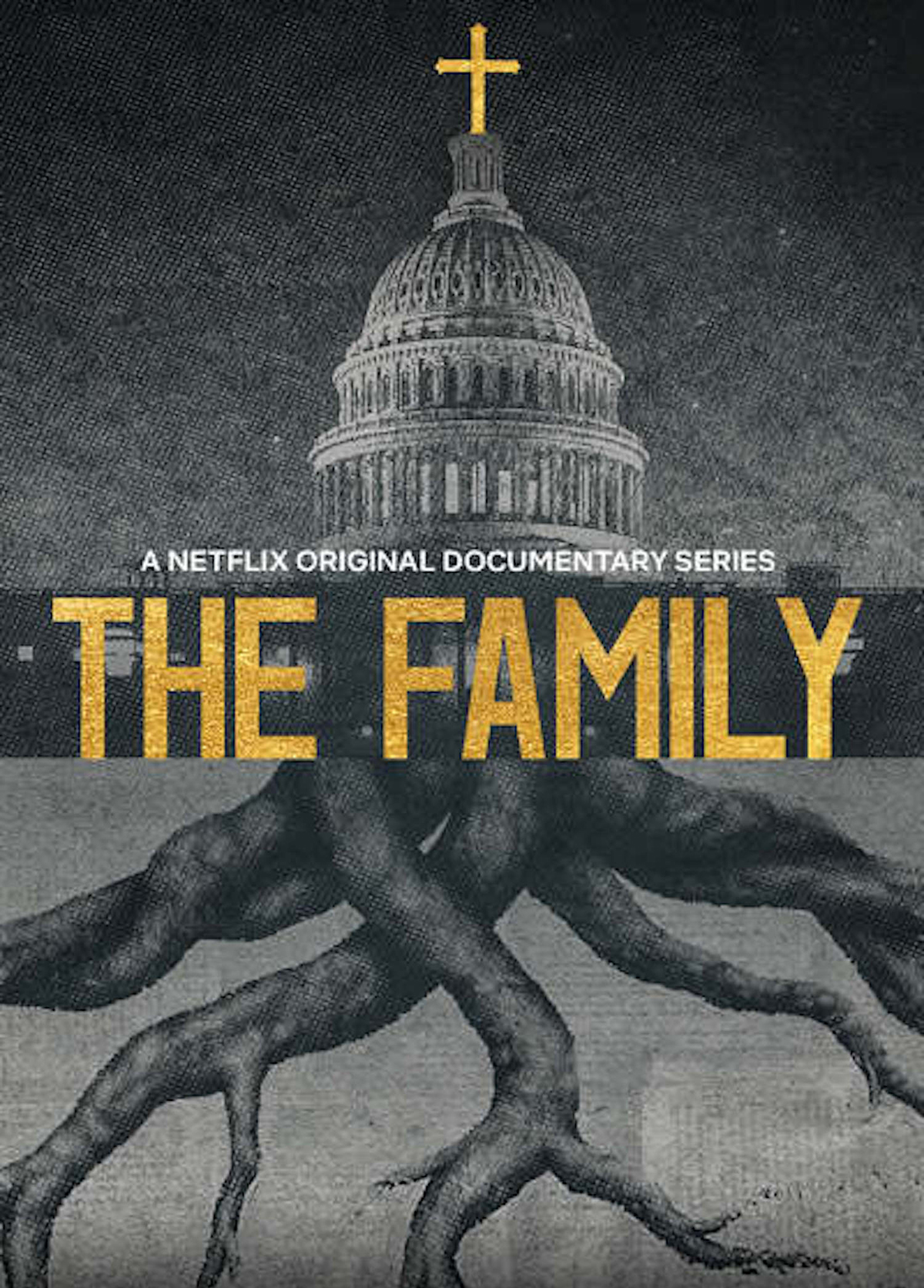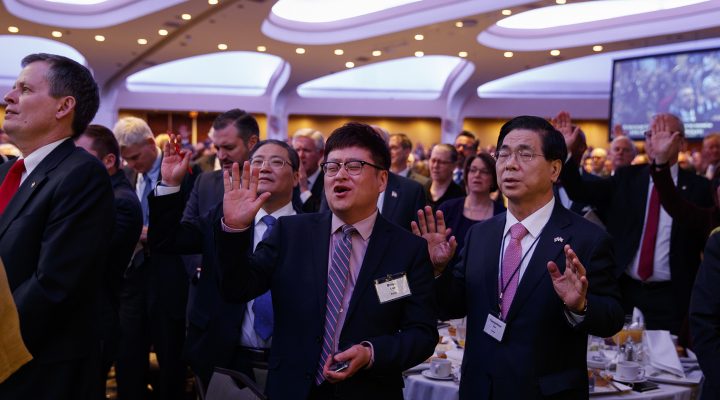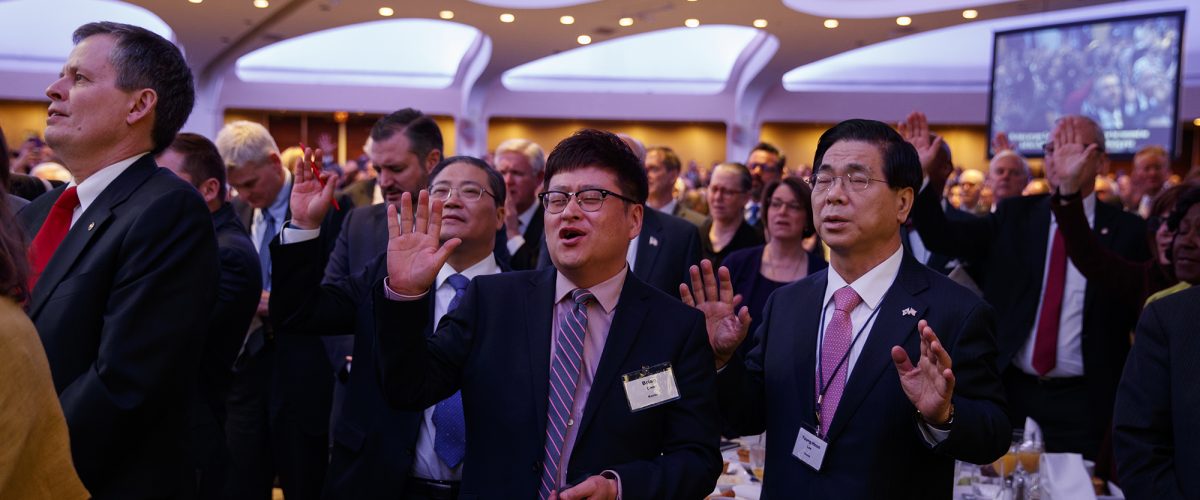Congressional leaders say they have split the National Prayer Breakfast from its longtime organizer to bring clarity and healing to the annual event, but constitutional experts Amanda Tyler and Holly Hollman believe government leaders should get out of the prayer event business altogether.
“Even though this isn’t a government-sponsored event, the optics of it make it look and feel official and make it look like the government is sponsoring the event,” BJC Executive Director Amanda Tyler said in the Jan. 26 episode of “Respecting Religion,” a weekly podcast she co-hosts with Hollman, BJC legal counsel and associate executive director.

Amanda Tyler and Holly Hollman
The name of the event, plus traditional attendance of the highest-ranking public officials in the nation, blurs the constitutional line separating church from state, she said. “When the president of the United States attends; when you have members of Congress attend; then we need to be careful about what signal is being sent about the government’s role.”
The 70-year-old event has been marked by controversy in recent years, including contentious appearances by former President Donald Trump, who used the gathering to stump for his policies and blast political opponents.
The 2023 prayer breakfast, scheduled for this Thursday, Feb. 2, will be hosted by the National Prayer Breakfast Foundation, led by former U.S. Sen. Mark Pryor of Arkansas. Previously, it was hosted by the Fellowship Foundation, also known as “The Family,” a private Christian organization that staged the two-day event since the 1950s.
“The whole reason the House and Senate wanted to do this was to return it to its roots, when House members and Senate members can come together and pray for the president, pray for his family and administration, pray for our government, the world,” Pryor said in a story published by the Associated Press.
Until now, the breakfast featured upwards of 1,500 invitees who met over two days in a major Washington, D.C., hotel. The congressionally run event will gather only 200 to 300 attendees, including President Joe Biden, members of Congress and their guests at the U.S. Capitol Visitors’ Center, where bagels, coffee and tea will be served instead of a full sit-down breakfast.
In an email to the Associated Press, a spokeswoman for Sen. Tim Kaine said the Virginia Democrat stopped attending the breakfast in 2016 because it “had become an entertainment and lobbying extravaganza rather than an opportunity for spiritual reflection.”
But government involvement in religious events such as the prayer breakfast have become an even worse idea in the age of growing Christian nationalism, Tyler said.
She defined Christian nationalism as a political ideology and cultural framework that seeks to merge Christian and national identity “so that to be a real and true American, one has to be Christian, and to be a real Christian one has to have certain political beliefs.”
A prayer breakfast attended by top-ranking political leaders — including every U.S. president since Dwight D. Eisenhower — looks like it fits that description, Tyler said.
“Having this private event sponsored by an explicitly Christian organization, and having all of these indicators that the government is heavily involved, sends this signal to people watching that to be truly welcome — certainly in this room and overall in America — that one has to be Christian. That’s the message that seems to be being sent here.”
While prayer breakfast organizers have spoken welcomingly about members of other faiths, they usually have done so expressly in the name or spirit of Jesus, Tyler added.
“Certainly, Jesus did welcome everyone no matter what their faith background was. He taught that our neighbor is everyone. … But that’s not always the message everyone receives. Jesus is unique to Christianity. Not everyone is a Christian, and we can’t suppose everyone hears that the same way.”
Concerns about the National Prayer Breakfast are less about constitutional issues than they are about detrimental religious and political effects, Hollman said.

Donald Trump speaks during the 2019 National Prayer Breakfast on February 7, 2019, in Washington, D.C. (Photo by Chris Kleponis – Pool/Getty Images)
“It’s not that the event so much raises legal problems, but it does reflect some of our Christian nationalism problems,” she explained. “It often includes controversy and confusion about the proper relationship between religion and government. We know prayer in government forums is almost always controversial.”
President Trump used the 2017 National Prayer Breakfast to announce his intention to “destroy” the Johnson Amendment, which prevents tax-exempt organizations from political involvement, Hollman recalled.
Although Trump ultimately failed to scuttle the amendment, his actions demonstrated an attempt to blend religion and politics “in a way he assumed would be applauded by religious people in the room,” Hollman noted.
An even more serious issue from a constitutional standpoint is the National Day of Prayer, a government-sponsored event held in May featuring overtly Christian prayers and leaders, Tyler added.
“For us, the National Day of Prayer is more problematic than the National Prayer Breakfast because it fits into this larger issue of religious exercise sponsored by the government.”
“For us, the National Day of Prayer is more problematic than the National Prayer Breakfast because it fits into this larger issue of religious exercise sponsored by the government. … The problem with the National Day of Prayer is that it is an official act of the government urging citizens to engage in a religious exercise. Just to be clear, we do not think the government has a role in making us pray, or even suggesting that we should pray.”
Hollman said the line separating church from state is crossed in such events. “It’s one thing to try to bring us all together and for members of the government to express religion in public life, but it’s another thing to usurp the role of religion in the life of citizens by sponsoring events or assuming a certain religious uniformity when there is none.”
 The Fellowship Foundation, previous longtime sponsor of the National Prayer Breakfast, is a secretive Washington organization that was the subject of a 2019 Netflix docuseries. The group has been criticized for its blending of political influence with evangelical religion with no public accountability.
The Fellowship Foundation, previous longtime sponsor of the National Prayer Breakfast, is a secretive Washington organization that was the subject of a 2019 Netflix docuseries. The group has been criticized for its blending of political influence with evangelical religion with no public accountability.
According to The Young Turks website — where news of the change first broke last week — all the leaders of the new foundation still have ties to The Family.
Meanwhile, the International Foundation (another name for the Fellowship Foundation) plans to hold a larger event simultaneously Thursday at the Washington Hilton that will be more like the traditional prayer breakfast, according to A. Larry Ross, a media relations manager for several conservative evangelical ministries.
Ross told the Washington Post about 1,400 people will be in attendance at the two-day event. Its Thursday breakfast program “will be interrupted to carry the president’s message into the ballroom via livestream in real time,” he said.
Ross has been an apologist for The Family, writing a 2019 opinion piece for Religion News Service criticizing the Netflix documentary.
Related articles:
Trump uses National Prayer Breakfast to attack political foes
At National Prayer Breakfast, Obama discusses personal Christian faith


